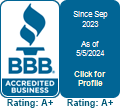Engaging in plumbing without a proper license is a legal concern. Mastering the art of plumbing demands years of training and hands-on experience. Everyone seems to have that friend, neighbor, or relative claiming to be a skilled plumber, offering budget-friendly services. While some minor tasks might be within reach for amateurs, it’s crucial to exercise caution, especially when dealing with the pipes responsible for your drinking water, cooking, and bathing needs. Review local guidelines, but a general rule is to avoid unlicensed work involving extensive pipe work or concrete removal beyond 5 feet. For more insights into plumbing regulations and career prospects, dive into this article or consult a licensing expert.
REQUEST A FREE ESTIMATE
In a hurry? Contact us at (727) 232-4869
What Are the Dangers of Performing Plumbing Work Without a License?
Unlicensed plumbing can be dangerous. It’s important to be truthful about all of them for the sake of your health and safety and that of those who live in your home.
Your plumbing system may not pass inspection. Why is that important? Even small inconsistencies can cause pipes to leak or burst due to a lack of water pressure. Busted plumbing is not only expensive, but it can also permanently damage a home’s foundation. It could even be dangerous.
Failure to inspect can lead to costly repairs. Legal and financial penalties can be severe. You may face fines if you are caught working in an area that requires a permit. Unlicensed work can increase the financial risk for homeowners. Some homeowner’s contracts can make you liable for 100% of any damages resulting from bathroom and kitchen remodeling that is not licensed.
Health hazards are also important to consider. Correctly installed plumbing can lead to mildew and mold, which could cause respiratory infections and asthma. Slow leaks may leave pools of water that are difficult to detect on slippery floors. This can be a deadly risk for children and elderly people.
How Can I Obtain a Plumbing License?
The licensing process is not quick or simple. Plumbing is an extremely complex and precision-oriented art. A licensed professional plumber can earn up to $200,000 per annum, and the owners of their plumbing business have all of the decisions. You’ll need to have a license in order to compete.
Three steps are usually required to obtain a plumbing license: completing a journeyman’s apprentice, passing the local licensing exam and qualifying for it.
Plumbing apprenticeships are the hardest part of obtaining a professional license. Plumbing apprenticeships pay. Apprentice plumbers are given practical training at actual job sites, including technical instruction and essential tools, as well as business practices such invoicing, contracting and OSHA safety.

Dial now (727) 232-4869
Apprenticeships Last
Apprenticeships last typically 4-5 years. They can be managed by a local union of plumbers, a trade-school, or even a private firm.
Before you consider a plumbing apprentice, ensure you are following the licensing requirements in your area. After you’ve received your proof of a plumbing apprenticeship, you will need to gather the rest of the materials needed to pass an official plumber license exam. These include school transcripts and proof of insurance.
The last thing on the list is to take the test. States must provide licensed examination study guides. You’ll know the difference in fuel gas piping from industrial piping after four years of plumbing apprenticeship. But you should start studying the night before the exam.
Do I Need a Permit for Plumbing Work?
Permits and licenses are two different things. Licenses are proof that a contractor is a professional who knows his craft, can perform repairs safely and meets state and local codes. Permits, which are issued by Building Codes Divisions and BCD field offices, authorize the contractor to do work for every job. You’ll only need to pay the fee and fill out a simple form to receive your permit.
Work that does not require a permit includes minor repairs, replacing parts in sewers and water systems, maintaining existing appliances and fixtures, and performing maintenance on exterior rain drains. It is rare to find a licensed professional plumber who would say that working without a permit was ever a good thing, but it does happen.
Avoid any work that involves demolition or excavation, including emergency repairs, underground piping replacement, and installing new water or waste pipes longer than 5 feet.
The Bottom Line
You’ll need a license (and permit) whether you plan to hire or become a plumber who works full-time, or if you just want to save a project for a rainy afternoon. This is the only way you can get the big, honest projects that make up the backbone of any independent business.
Contractor Training Centre provides services and resources for upstart contractors. These include everything from classes on exam preparation to tutoring.
Remember, DIY plumbing can be a slippery slope. Protect yourself and your property – call a licensed plumber today!
Call Clog Kings LCC
Our Other Services
Clog King’s plumbers strive to provide great customer service from start to finish. Our services include:
- Drain Cleaning
- General Plumbing Repair
- Sewer Repair
- Sewer Replacement
- Tankless Water Heater Installation
- Toilet Repair
- Video Plumbing Inspection
- Water Heater Replacement
- Expert Water Softener Installation Services
- Water Filtration
Don’t let these problems disrupt your daily routine or cause further damage to your property! Take charge and call the royal experts at Clog Kings for top-notch plumbing solutions. Contact us today!






